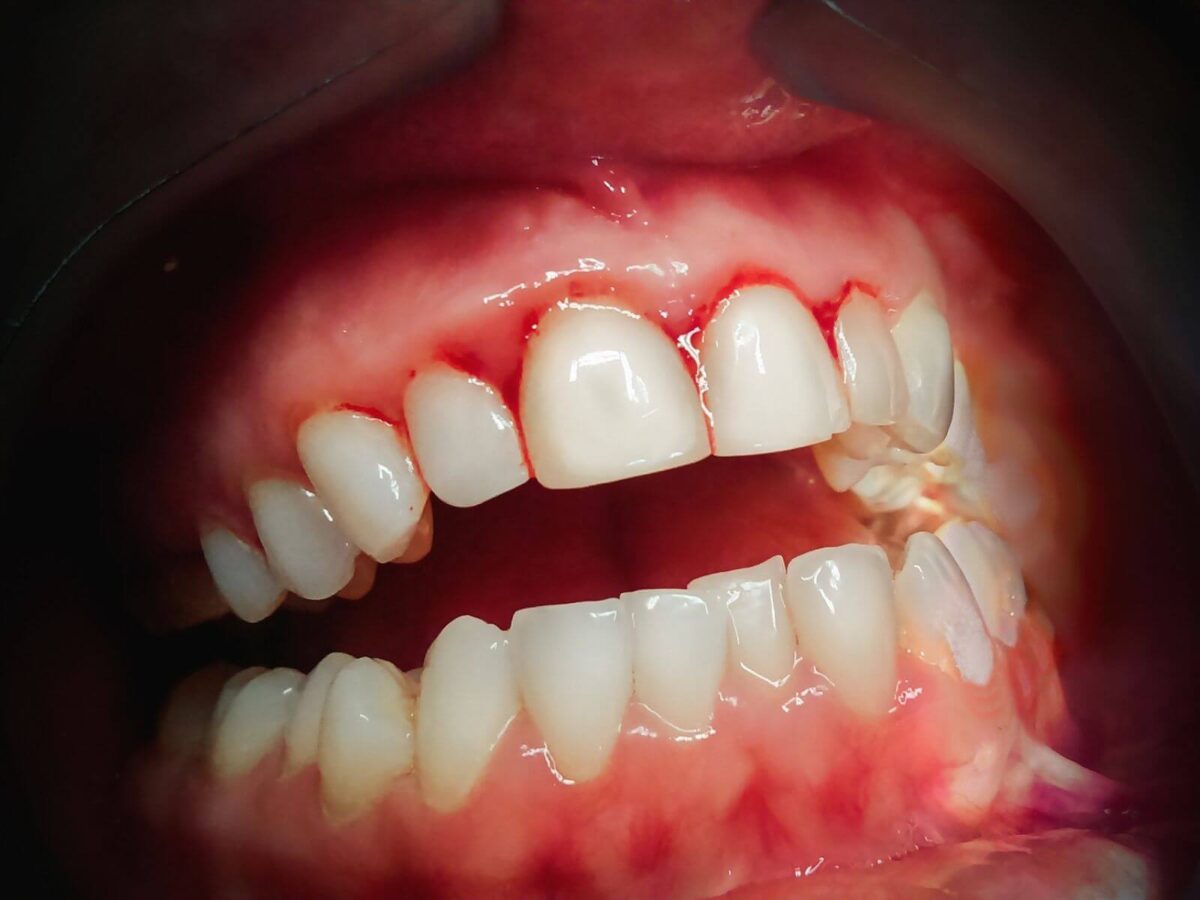Blog
Dental hygiene tips for healthy teeth & gums

The Hidden Dangers of Tobacco on Your Teeth And Gums
A silent battle against oral health difficulties continues unnoticed beneath smoke that drifts through the air. People who smoke commonly do so with harmful effects extending beyond their respiratory system to damage dental tissues like teeth and gums actively. The chemicals found in tobacco that target the teeth structure cause enamel dissolution and produce noticeable tooth stains.
This blog works to explain the complex relationship between smoking and oral health while demonstrating the harmful effects that extend beyond superficial oral issues. We must understand the harmful factors threatening our teeth because protecting our smiles requires determined action.
Chewing Tobacco
Research by the Academy of General Dentistry (AGD) shows that tobacco chewers have a 50 times higher risk of getting gum and cheek cancers. The demolishing effects of chewing tobacco reveal sensitive tooth roots while creating an optimal predicament for hazardous microbes to thrive. The bacteria that accumulate in this environment create cavities and cause tooth sensitivity. Our dental team stands ready to help you protect your mouth while aiding your tobacco chewing cessation.
Smoking
Oral health suffers equally badly from smoking as it does from chewing smoking products. According to the American Gums and Dental Association, studies show a daily habit of a single pack of cigarettes leads to two tooth losses over ten years. Your teeth support structures grow weak when you smoke, raising your risk of losing teeth. Your smile will show darker teeth as a consequence of your smoking habits. You will face oral health risks no matter if you smoke cigarettes or cigars.
Relation Between Smoking and Gum Disease
Gum infections become harder to fight as smoking weakens your body’s immune system. Smoking causes additional difficulties for your gums in rebuilding themselves after gum damage.
Do Smokers Face Particular Health Consequences?
Anyone who smokes faces double the odds of developing gum disease rather than nonsmokers do.
Your risk of getting gum disease increases directly with the amount of cigarettes you smoke.
The time someone spends smoking leads to greater risks of developing gum disease.
Smokers experience less effective outcomes from treatments aimed at gum disease treatment.
The Effects Of Smoking On Oral Health
Smoking produces major health risks, which result in fatal medical conditions alongside numerous other health problems. Most people are not aware of how smoking creates problems for their mouths, along with gum damage, tooth staining, and eventual tooth loss, which might lead to oral cancer.
Teeth Staining, Bad Breath, Loss Of Smell And Taste
Rotting tooth enamel from smoke chemicals binding to teeth leads to dental cavities and decay, eventually producing tooth discoloration. Thanks to tobacco-related chemicals and sliding saliva levels, smokers experience an everlasting offensive mouth odor that leads to prolonged bad breath.
Toxins in smoke reduce taste perceptions and smell function, impacting neural presentations and overall wellness. Tobacco consumption leads to tooth color changes, gum diseases, and tooth loss, followed by the development of oral cancer. Various people understand the health risks that exist, yet they are unaware of how tobacco consumption damages oral tissues and affects gums and tooth structure.
Immune System Flaw
Smoking undermines people’s immune systems so that infections in the mouth last longer between dental operations, and patients require more time to heal because tobacco consumption weakens the body’s defense system. It makes people more vulnerable to periodontal disease, so dental care professionals need to prioritize attention and prevention-based care.
Periodontal And Gum Disease
Periodontal disease develops because cigarette smoking leads to inflamed gums that eventually recede and start bleeding. Unless treated immediately, tooth loss becomes an expected consequence. The management of oral health problems depends heavily on cutting smoking habits.
Non-smokers face only about half the risk that smokers experience for losing teeth through dental pain, cavities, and gum damage.
Tooth Loss And Decay
The weakening of enamel from smoking produces tooth loss by allowing bacterial growth that leads to decay. Apart from erosion induced through compounds, tobacco encourages cavity formation. The development of germs and plaque, together with tartar formation, demands both proper oral health care and smoking cessation.
Cancer Of The Mouth
Exposure to dangerous chemicals found in cigarettes and cigars, plus smokeless tobacco products, creates cell mutations in oral tissues that significantly increase the risk of developing oral cancer while leaving patients with complex treatment options.
Smoking Cessation and Dental Health
People searching to break their dangerous smoking habit can become more motivated when they fully understand the hidden dental health threats of this habit. The cessation of smoking creates benefits for both the entire body’s health and dental health quality. The American Dental Association backs smoking cessation programs and endorses dental practitioners as essential partners for guiding patients through their journey to complete smoking cessation.
Dental Care Tips for Smokers
Dental hygiene, regular check-ups, and a healthy lifestyle should become top priorities. People who keep smoking can protect their dental health through several important steps, including regular brushing combined with flossing and mouthwash for better prevention of gum disease and bad breath, alongside reduced tobacco consumption and specialist smoking cessation help.
Conclusion: The Role of Dentists
Dentists play a crucial role in smoking cessation programs and educate patients about the hidden risks that smoking poses to dental health. They are committed to promoting healthier and smoke-free lifestyles.
Your oral health superiority allows you to beat cigarettes and maintain your smile. Tobacco use damages teeth but also puts you at risk of developing oral cancer. Giving up smoking creates new possibilities to protect your teeth and prevent tooth loss alongside dental decay and disease of the gums. Contact Rio Dental for all your dental needs.


